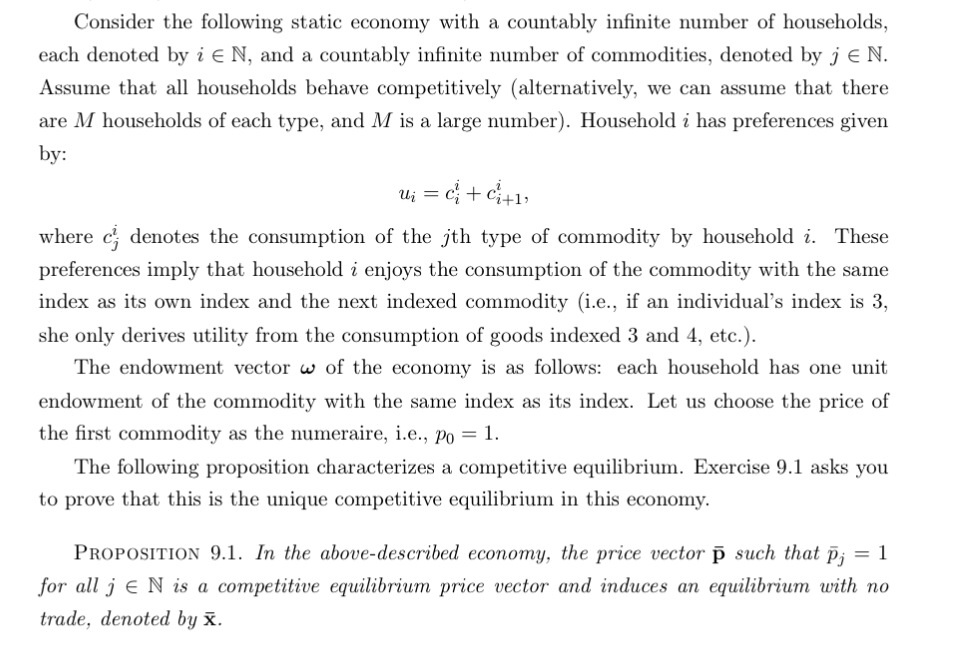Shell 1971 argues (in a ten page paper, so read it!) that the dynamic inefficiency stems from the double infinity of traders and goods, and not the dynamics. This allows us to do the Hilbert hotel switch.
Therefore, even when all souls are able to transact business in the same
Walrasian market, the absence of Pareto-optimality persists in the competitive-equilibrium model. This absence of Pareto-optimality is implicit in Gamow's hotel problem. An innkeeper has committed each of the denumerably infinite number of beds on a certain rainy night. A guest asks for a bed when all are occupied, but a bed can be found if the innkeeper requires each guest to move down one bed. In our little chocolate game, the imposed allocation can produce one extra chocolate. In the hotel problem, on the other hand, the innkeeper by imposing an allocation will be able to produce a denumerable infinity of extra beds.
Consider the following static setup.
- A countable number of agents $i$, indexed $-1, 0,1, 2, 3, \ldots$.
- A countable number of goods $j$, indexed $0, 1, 2, 3, \ldots$.
- Agent $-1$ has preferences $u^i(c_0, c_1, \ldots) = c_0$.
- Agent $i\ge 0$ has preferences $u^i(c_0, c_1, \ldots) = c_i + c_{i+1}$.
- Agent $i\ge 0$ is endowed with one unit of good $i$. Agent $-1$ has nothing.
Then autarky (everyone consumes what they were endowed with) is a Walrasian equilibrium (even though everyone can meet at the same time). This Walrasian equilibrium is not Pareto efficient (for the same reason as always). The fact that people can meet and trade does not alleviate the inefficiency.
Note that in the static setup, introducing money cannot help (because who would be so dumb as to hold money after the static trade?).
The fragility of intergenerational social contracts shows up in our example. If the $k$th generation repudiates the money of its elders, it can avoid passing chocolate backward. Furthermore, the $k$th generation can gain seigniorage by printing new money. Under this monetary reform the reforming generation may have chocolate passed to it, but itself passes none backward. If all souls had met in an atemporal Walrasian market, the monetary reform would have been revealed to be a nonequilibrium solution. In the actual dynamic world, "monetary reform" merely leads to frustration of the $(k - 1)$th generation's expectations. The most notable instance of such frustration is when the peasants' sons leave home for the city and fail to provide adequately for their parents' old-age.
